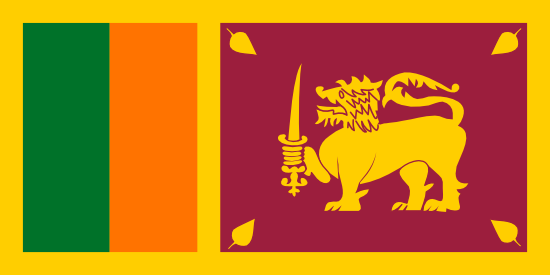
Health Insurance in Sri Lanka, Asia
Information expatriation
Capital City: Colombo
Total area: 65,610 km2
Population: 19,299,000
Money: Currency Converter
Time Zone: List of time Zones by Country
Calling Code: +94 XXX
Practical Information:
Health Product: Travel Insurance and Health insurance
Health Insurance information and Sanitary Risk: World Health Map
BLOG Expat Health insurance Information
Here is a brief description of the healthcare system in the country:
· Sri Lanka has a universal healthcare system that aims to provide free basic care to all citizens.
· It is a publicly funded system managed by the Ministry of Health through a network of government hospitals and primary care facilities.
· Primary care facilities like medical officers of health clinics serve as first point of contact.
· There are outpatient and inpatient services available at government hospitals ranging from district to tertiary levels.
· Services include preventive, promotional, and rehabilitative care focused on maternal/child health and chronic diseases.
· Private health sector also operates for those willing to pay out-of-pocket including private hospitals, labs and pharmacies.
· Challenges include shortage of facilities, staff, and medicine availability outside major cities.
· Non-communicable diseases are a growing burden on resources due to lifestyle changes.
· Reforms aim to decentralize and strengthen primary care, boost healthcare spending and encourage public-private partnerships.
· Overall quality of care is considered reasonably good, especially at teaching hospitals in Colombo.
Here are some key health considerations for expatriates living in the country:
· Purchase private medical insurance as the public system faces resource constraints. This provides faster specialist access.
· Register with a primary care clinic/doctor for routine care and emergency referrals if needed.
· Ensure vaccinations are up to date, especially for measles, typhoid, hepatitis A/B which are prevalent locally.
· Monitor impacts from dietary/climate adjustments - conditions like dengue fever are common risks.
· Only consume bottled or treated water and thoroughly cook foods to prevent illnesses.
· Access to consistent care levels may vary between urban and rural/regional locations.
· Carry medications as shortages can occur - bring extra supply of any regular prescriptions.
· Be prepared for basic facilities/standards in some areas compared to developed countries.
· Learn some basic Sinhala or Tamil medical phrases to better communicate needs.
· Register with your embassy in case of medical emergencies requiring assistance.
· Follow all safety precautions - natural disasters or civil unrest can occasionally impact access.
